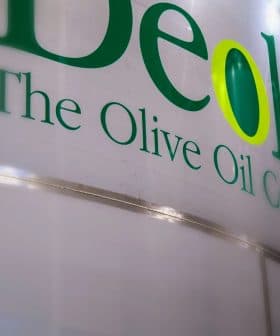Spanish Table Olive Sector on Edge After Trump Election Win

The Spanish table olive sector is concerned about potential new tariffs on European exports to the United States following statements made by President-elect Donald Trump, with past tariffs already causing significant losses in exports. Producers and exporters are urging the E.U. to address the issue promptly and take a dynamic stance in negotiations to prevent further damage to the table olive industry.
President-elect Donald Trump’s campaign statements, in which he hinted at new tariffs on European exports to the United States, have weighed heavily on the Spanish table olive sector.
Producers and exporters argued that the E.U. must promptly address the potential for new tariffs.
According to Antonio de Mora, secretary general of the Association of Table Olive Exporters (Asemesa), U.S. tariffs on Spanish table olives already resulted in a loss of €260 million in exports over the past five years due to measures imposed during Trump’s previous administration.
See Also:Table Olive and Olive Oil Trade NewsDe Mora explained that, with reduced volumes of table olives shipped to the United States, Spanish producers saw their market share shrink by 70 percent.
“We lost those exports while competing countries, such as Egypt, Turkey and Morocco, expanded their own,” de Mora told Canal Sur Radio.
The exporters’ association noted that the E.U. had quickly confronted China over tariffs, even announcing countermeasures against potential new tariffs on European exports.
They urged Brussels to adopt a similarly dynamic stance in addressing the anticipated U.S. tariffs.
Trump has reportedly tapped former U.S. Trade Representative Robert Lighthizer, who masterminded the previous Trump administration’s policy around tariffs, to join his new government as a trade advisor.
De Mora also highlighted that Trump has mentioned a possible ten to 60 percent increase in tariffs on all E.U. exports to the U.S. on several occasions.
Exporters fear such a hike would add to the existing tariffs burdening the table olive sector.
Gabriel Cabello, president of the table olive sector in Cooperativas Agro-alimentaria de España, pointed out that since the U.S. election, there has been widespread concern and uncertainty throughout Spain’s table olive industry.
Cabello warned that the impact could extend well beyond the table olive sector.
“When the conflict between Boeing and Airbus ended in an agreement, the U.S. considered extending the existing tariffs on table olives to green olives and olive oil as well, though the decision was postponed for five years, three of which had already passed,” he said, alluding to the long-standing dispute that challenged the olive sector for years.
“We faced these tariffs for six years, and despite having two favorable WTO rulings to lift them, the E.U. did not take any action to resolve the issue because we are a small sector. They might act differently for larger industries,” Cabello added, hinting at the possible new tariffs on the automotive sector.
The Unión de Uniones, an association representing Spanish farmers and ranchers, published a report highlighting the importance of Spain’s strategic exports to the United States.
Regarding value, olive oil and related products stood out as a significant export category, surpassing any other Spanish food products sold to the U.S.
According to the association, new tariffs would have had a heavier impact on products with higher export volumes.
“This measure… would disproportionately affect products like olive oil, which accounted for 29.5 percent of total agri-food exports to the United States, with sales exceeding €739 million in 2023.”
Unión de Uniones stressed that the E.U. should negotiate with the President-elect, reminding Trump’s administration that initiating a trade war would have had negative consequences for both sides.
In their view, the E.U. could impose countermeasures on U.S. strategic exports, including almonds, automotive products, technology, alcohol and luxury goods.
“We ought to remain vigilant on this issue, not just concerning food exports. We already know that Trump would swap planes for olives without hesitation,” the Unión de Uniones commented. “It is essential that the E.U. manages this situation effectively and negotiates to ensure that agri-food exports are not used as a bargaining chip.”
Rafael Sánchez de Puerta, president of Cooperatives Agroalimentarias, emphasized that U.S. tariffs on olive oil and table olives from Spain “do not make sense.”
“A tariff is put in place to protect your products from external competition, but American olive oil production is symbolic, and the only outcome is a tax that U.S. consumers have to pay,” Sánchez de Puerta concluded.









